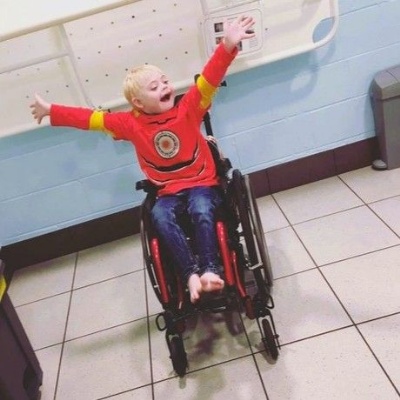Why the Right Wheelchair Changes Everything

On Thursday, it was headline news on the BBC that more than a thousand disabled children across the UK are waiting for wheelchairs and mobility equipment that could transform their lives, according to Whizz Kidz.
Let’s be honest: caring for a child with additional needs is challenging. And one thing that can make it even harder—though it often goes unnoticed—is getting the right wheelchair.
Even in areas where things are “slightly better,” the system can still leave families waiting. Wheelchair services aren’t fully part of the NHS anymore—they’ve spun out into separate companies. Some are profit-making, some focus on community benefit, but NHS funding hasn’t kept up. The result? There aren’t enough wheelchairs, and families are left waiting… sometimes for months, even over a year.
Why It’s Such a Struggle
Wheelchairs are expensive. On paper, averages might say £4,500–£5,000, but in reality, many cost closer to £6,500, especially if they need to be custom-made. And kids grow fast—so even the official “replace every four years” rule doesn’t always work.
Eligibility can also be tricky. If a child can walk even a little indoors, they might not qualify. Families who really need a wheelchair often hear, “Sorry, you don’t meet the criteria.” And once a wheelchair is approved, repairs can take weeks. Even a small problem can leave a child stuck at home, missing school and time with friends.
The Real Impact
We’ve seen firsthand what delays like this do to families. Children lose independence, friendships, and sometimes vital education. Parents are physically exhausted from lifting and moving their child, and the mental health impact on the whole family is huge.
It’s not just about mobility—it’s about life. When a child can’t get around safely and comfortably, their whole world shrinks.
When a Chair Doesn’t Fit
A poorly fitted wheelchair can have serious knock-on effects:
-
Poor posture, pain, and even surgeries.
-
Increased risk of pressure sores and other complications.
-
Isolation, because it’s hard to join in with friends or get around safely.
Parents feel the strain too. Caring for a child without the right equipment is exhausting, and some families end up relying on respite care—not because the child needs it, but because the physical and mental toll on the parents is so high.
And then there are the hidden costs:
-
Wheelchair-accessible taxis can cost twice as much as normal taxis.
-
Maintenance adds up—replacement wheels can cost hundreds, and accessories like wheel guards are pricey too.
-
Housing adaptations, transport, and other equipment are additional financial burdens.
For children with limited life expectancy, every delay matters. They shouldn’t have to spend their precious time stuck in bed.
It’s a Bigger System Problem
This isn’t just a problem with wheelchair services—it’s a symptom of a system that’s underfunded and overstretched. Even when charities step in to help, funding is harder to access than ever:
-
Some charities have closed applications or waiting lists.
-
Many grants require families to cover 20–25% of the cost themselves.
-
Families are often going into debt just to get essential mobility equipment.
That’s why we’ve created a grant finder tool—a helpful resource for families trying to identify sources of funding for wheelchairs and related support. It’s one way we can try to make a very stressful process a little easier.
How We Can Help
Support organisations like ours step in to:
-
Help families navigate the complicated referral and assessment process.
-
Work with professionals to make sure applications are complete.
-
Apply for grant funding so children can get the wheelchairs they need—even when NHS funding isn’t enough.
We also encourage families who need support to complete our Family Support form. It helps us understand your situation so we can offer guidance, connect you with resources, and provide personalised help where it’s needed most.
We can’t fix the system overnight, but we can make a real difference, helping kids gain independence, comfort, and a chance to fully participate in life.
Why It Matters
A wheelchair isn’t just a chair. It’s a lifeline. It affects posture, health, education, friendships, and mental wellbeing. The right chair can transform a child’s day-to-day life and reduce stress for the whole family.
Every child deserves that independence—and every parent deserves the support to make it happen.
